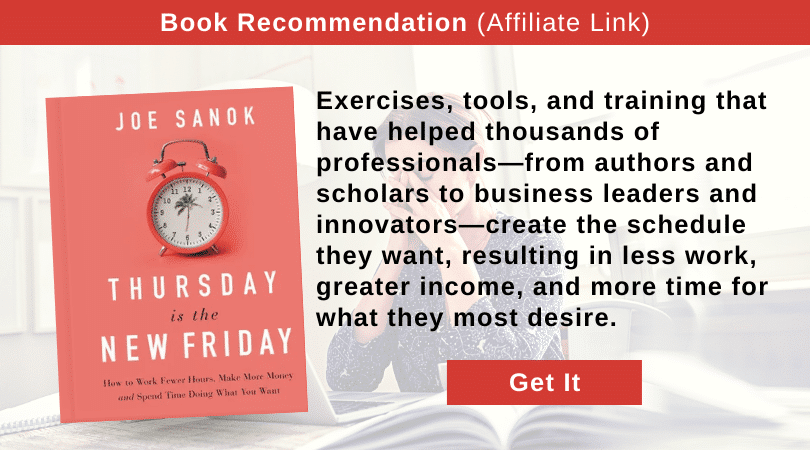Many of us have been taught that being busy is a good thing. The truth is, being busy does not mean that you are productive. You can be busy doing the wrong things. Getting more done with less implies that the impact you make is more significant than your effort.
Some ways to get more done with less:
Understand your key objectives
For any task, what is the point of doing it? Does this task actually impact any of your critical business objectives or the objective of the one task?
I think we all get caught up in busy work. Instead, let yourself de-prioritize the things that don’t really matter and focus on what does.
Automate
Now you know automation is one of my favorite topics.
Depending on the softwares & tools you use, you scan utilize a lot of built-in features to automate publishing, invoicing, scheduling, and more.
If you can document the steps you do for a task, you can likely automate a lot of it. From using macros within your documentation to implementing new automation tech, there is likely a way to do it.
Outsource
If you cannot automate it, you can likely get someone else to do it for you (like me).
As a small & overworked staff, you should totally make it your goal to outsource or automate as much as you can.
Recommended: What Types of Tasks or Projects Can Your Chamber Outsource?
Avoid multitasking
Multi 👏 Tasking 👏 Is 👏 Not 👏 Real!
Studies show it makes us less efficient & more prone to errors. #Science
So stop it.
Batch tasks
What does work however, is batching.
Once you’ve figured out what tasks you really do need to do, batch things together that make sense. The fewer steps you can take, the better.
Examples:
- For bookkeeping, save all your booking entries to do one day a week instead of doing it daily.
- If you heard me on the Chamber Chat Podcast, then you may remember I’m a big fan of batching not just social media, but even specific types of post. (Listen here)
- Copy my video batching checklist
Create realistic schedules
When you write your tasks into your calendar, it should make sense. If a task takes four hours, you need to ensure you really have four hours and not one.
For example, include set up time, drive time, and all the time needed to finish the task as scheduled completely.
Or if I have to guess an amount of time, I try to add in a 20% buffer, because interruptions life happens
Do the hard things first
If there is one thing on your list you really don’t want to do, but you cannot eliminate it, automate it, or outsource it, get that out of the way first thing.
Recommended: The Best Strategies to Beat Procrastination
Track your time
I know, all of the collective groans. In addition to because-the-board-said-so, time tracking can actually benefit you professionally.
When you first start doing things, it helps to track your time so that you stay mindful of how you’re spending it and so that you know how long any given thing really takes you.
This makes you more confident in your day-to-day work, projections, and hopefully in the argument for your well deserved raise.
Focus on money-making tasks
Note which tasks you do that generate invoicing or money in the bank. These need to be done first thing.
After all, you can’t impact your community if you’re not there & the chambers not there. You need money to function.
Cut distractions
Set up your workspace to eliminate distractions and interruptions. Turn off notifications, your phone, the TV, or anything that can take your mind off what you are doing. Sometimes I would even shut my door at the office to discourage ourselves from interrupting each other.
Use the right tools
Don’t skimp on investing in the tools of your trade. If a tool exists to use that helps streamline your business and eliminate busywork, you need it.
For example, CRMs (like ChamberMaster or Wild Apricot) can seem really pricey. But if you do the math for how much staff time they can save you, I think they’re well worth the investment.
Recommended: Dos and Don’ts of Getting a CRM System
Know your top three
Everyone has off days, but if you create a list of the top three (hopefully money-making) must-dos for a basic day, then even when you have issues, you can focus on those top 3 tasks.
As long as you got your most important things done, then you were productive! 😉
Recap
The best way to be more productive is not to do more stuff – it’s to do the most important work. The best strategies to help you with this are:
- Understand your key objectives
- Automate
- Outsource
- Avoid multitasking
- Batch tasks
- Create realistic schedules
- Do the hard things first
- Track your time
- Focus on money-making tasks
- Cut distractions
- Use the right tools
- Know your top three




